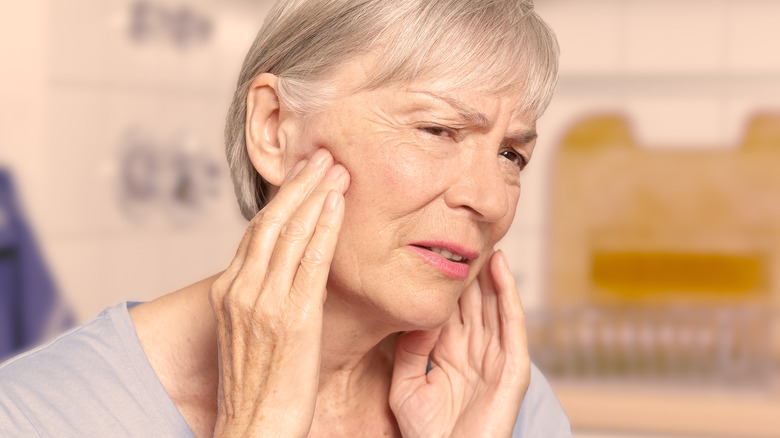Why Autoimmune Diseases Are More Common In Women Than In Men
Affecting over 23 million people in the United States alone, autoimmune diseases occur due to an overactive immune system (via Verywell Health). Typically, your body knows the difference between its own cells and those of an infection or illness. When it senses the presence of cells that are not its own, your immune system kicks into gear and attacks those unfamiliar cells to keep you healthy. But if you have an autoimmune disease, your body has trouble identifying the difference between your cells and those of an outside infection, and therefore will attack your healthy cells, resulting in a variety of symptoms, per Verywell Health.
While there are many different autoimmune diseases, many of them share common symptoms including pain and swelling in your joints and glands, issues with your skin, problems with your digestion, and unexplained recurring fevers, per Johns Hopkins.
While it's not entirely clear why autoimmune diseases occur, you may be more prone to them if you are overweight, smoke, have a family history of autoimmune disease, or if you are on certain blood pressure medications or antibiotics (via Johns Hopkins). As it turns out, being female may naturally make you more prone to developing an autoimmune disease as well.
Why autoimmune disease affects more women
It is likely that autoimmune diseases affect more women than men due to genetics and hormones (via Verywell Health). A 2020 study published in Cureus pointed to our genes, specifically the X chromosome, as a risk factor for developing an autoimmune disease. The study explained that because the X chromosome is far bigger than the Y chromosome, it has more gene-related information that it passes to the proteins within our cells, including information pertaining to our immune system. Because women are born with two X chromosomes compared to men who only have one, this provides greater opportunity for mutations, and women are twice as likely to develop autoimmune diseases, per Cureus.
Women are also at a higher risk of autoimmune disorders thanks to the many hormonal changes that they typically go through which affect the immune system, including puberty, pregnancy, and menopause, notes Verywell Health.
The most common types of autoimmune diseases that affect women include psoriasis, celiac disease, inflammatory bowel disease (IBD), rheumatoid arthritis, lupus, and multiple sclerosis (MS), per Verywell Health. While there is no cure for autoimmune diseases, there are many ways to help alleviate symptoms, including over-the-counter pain relievers and prescription medications.


